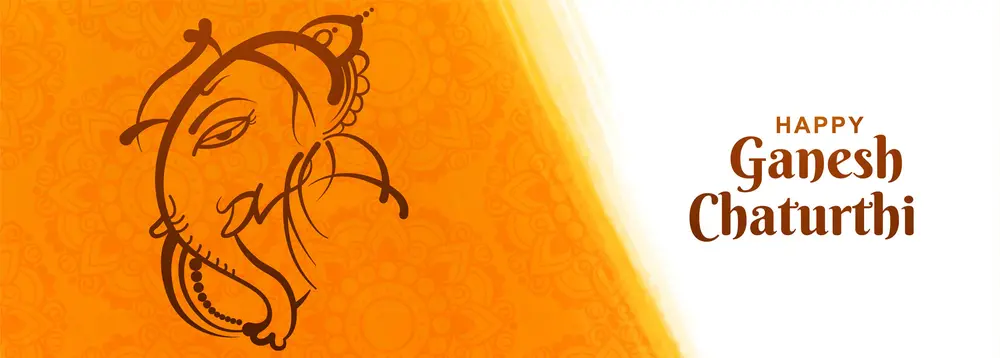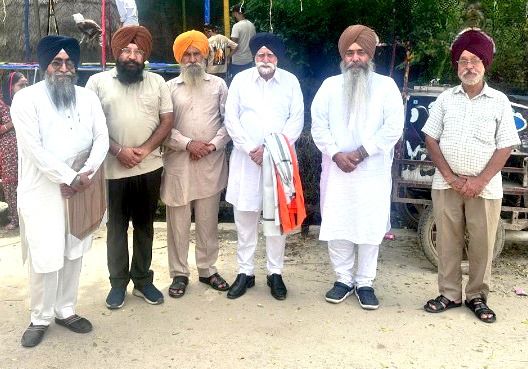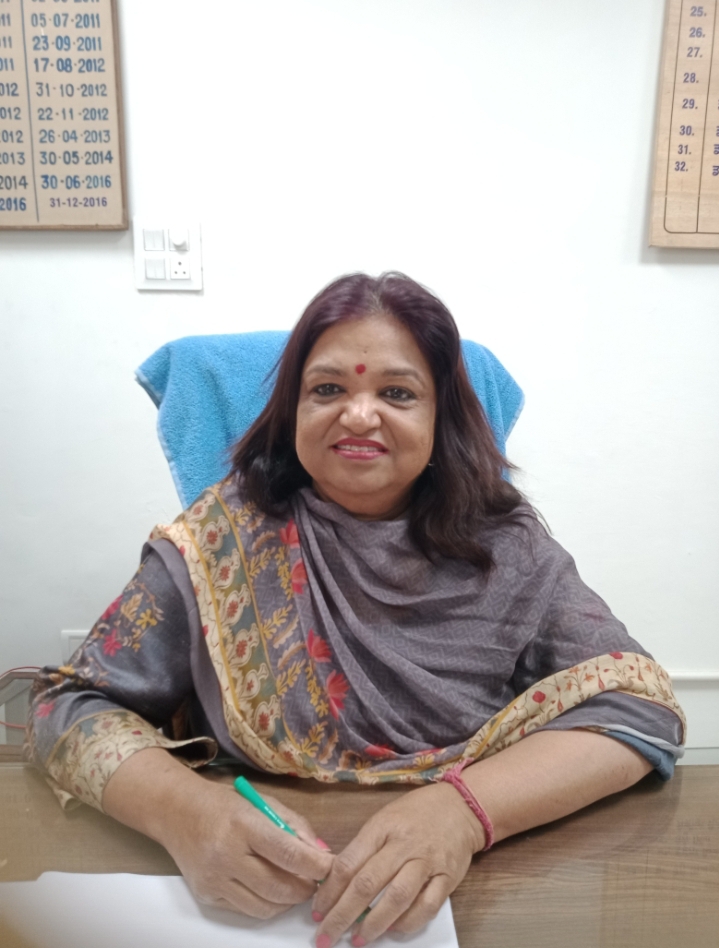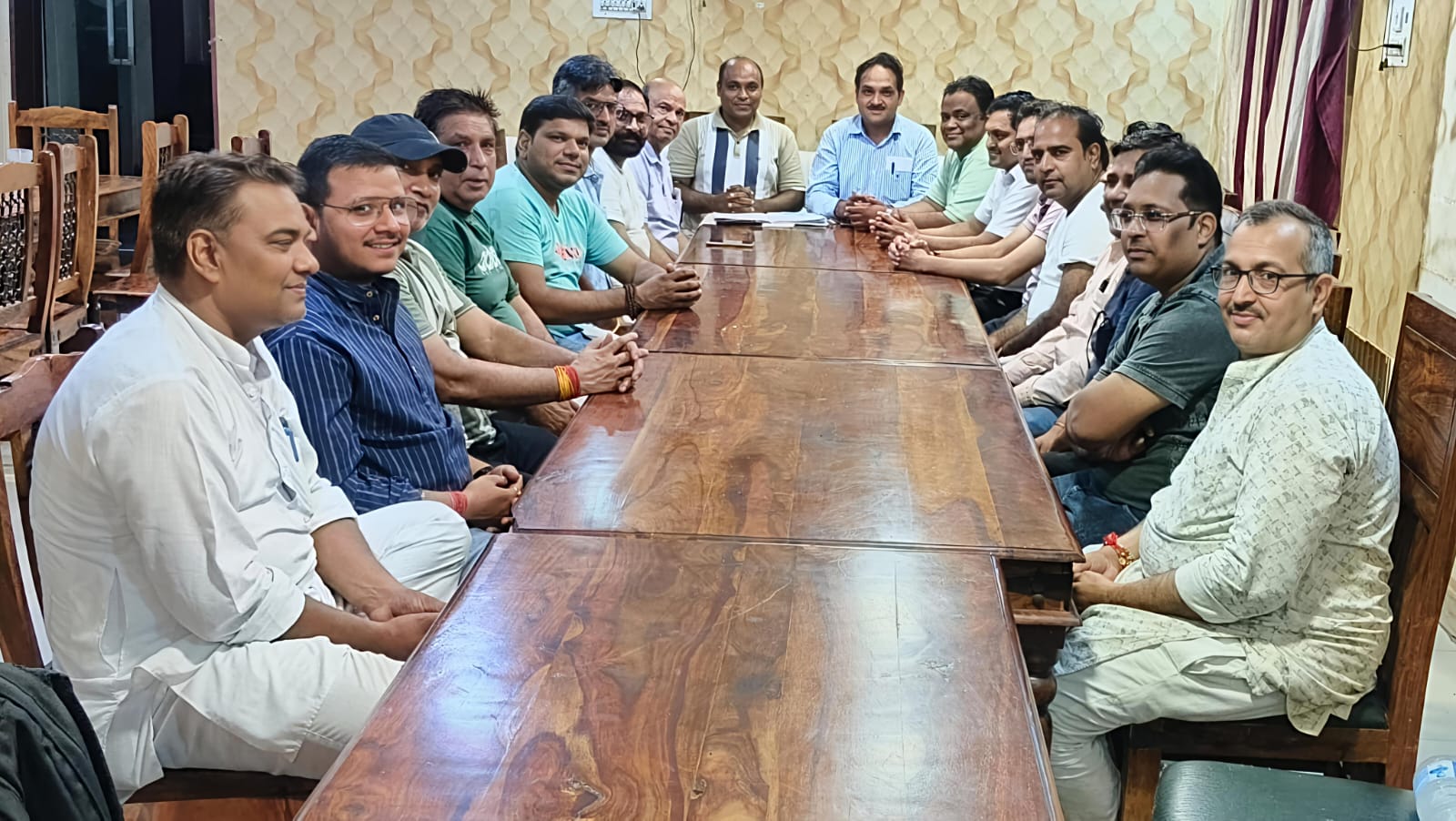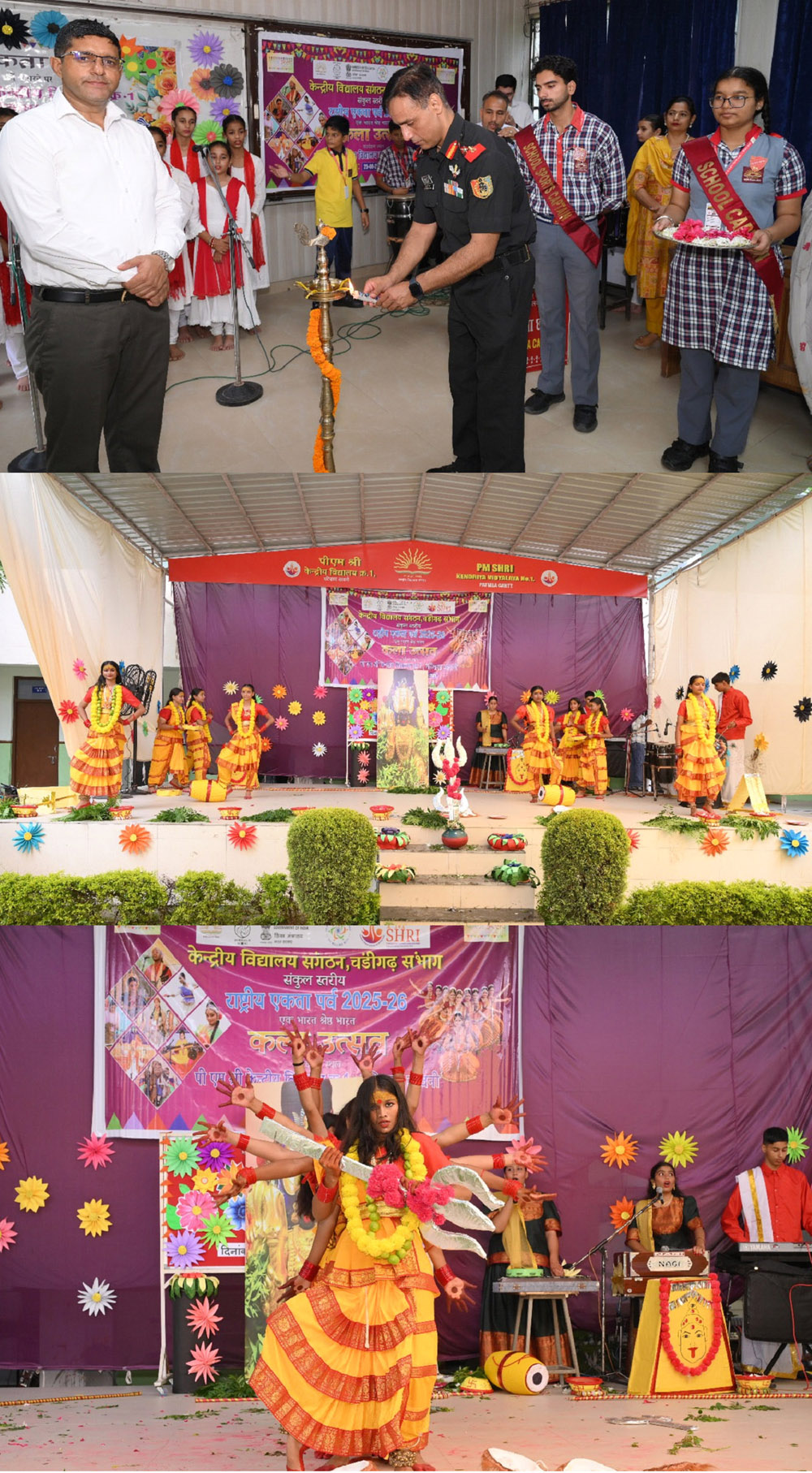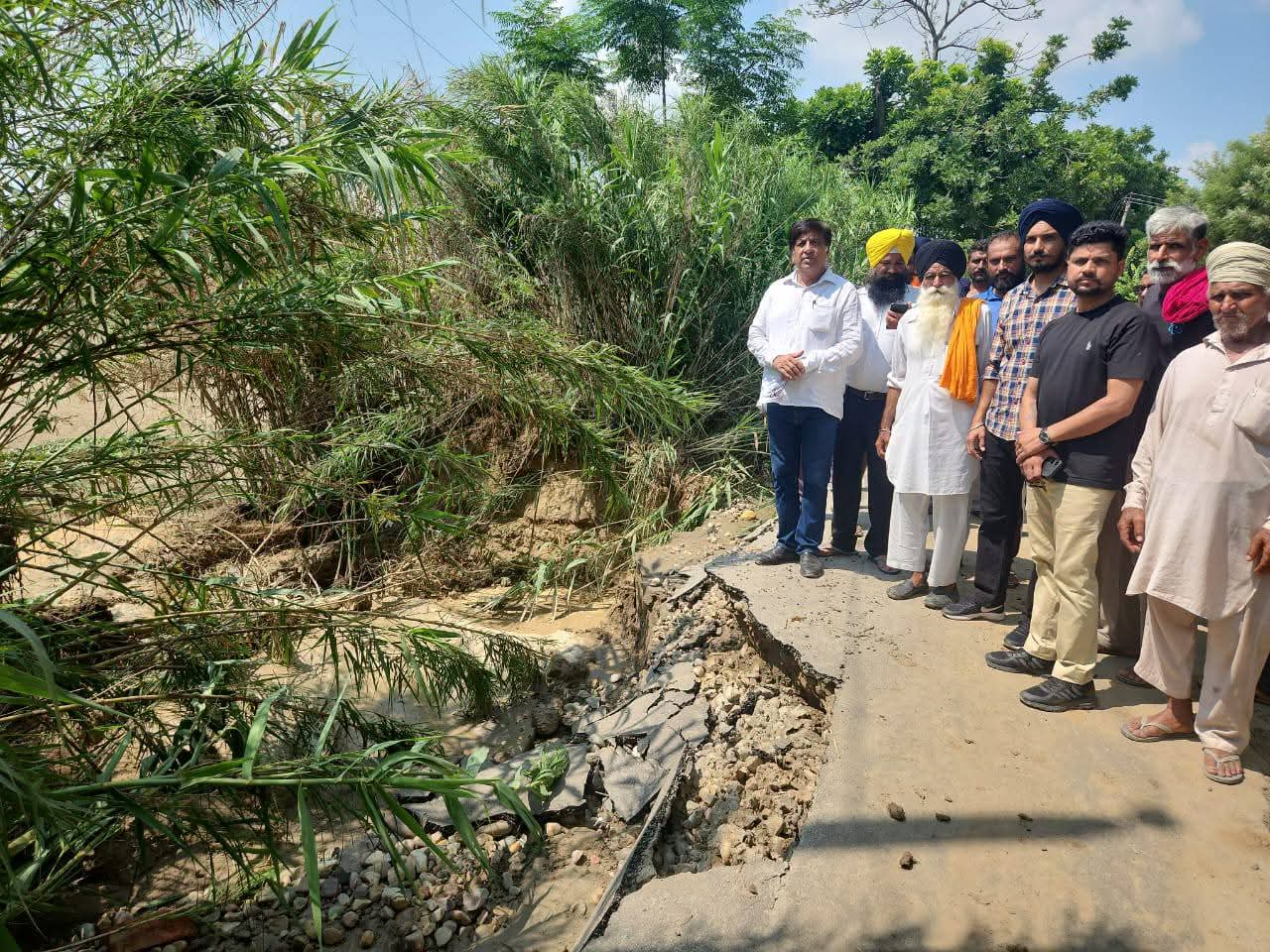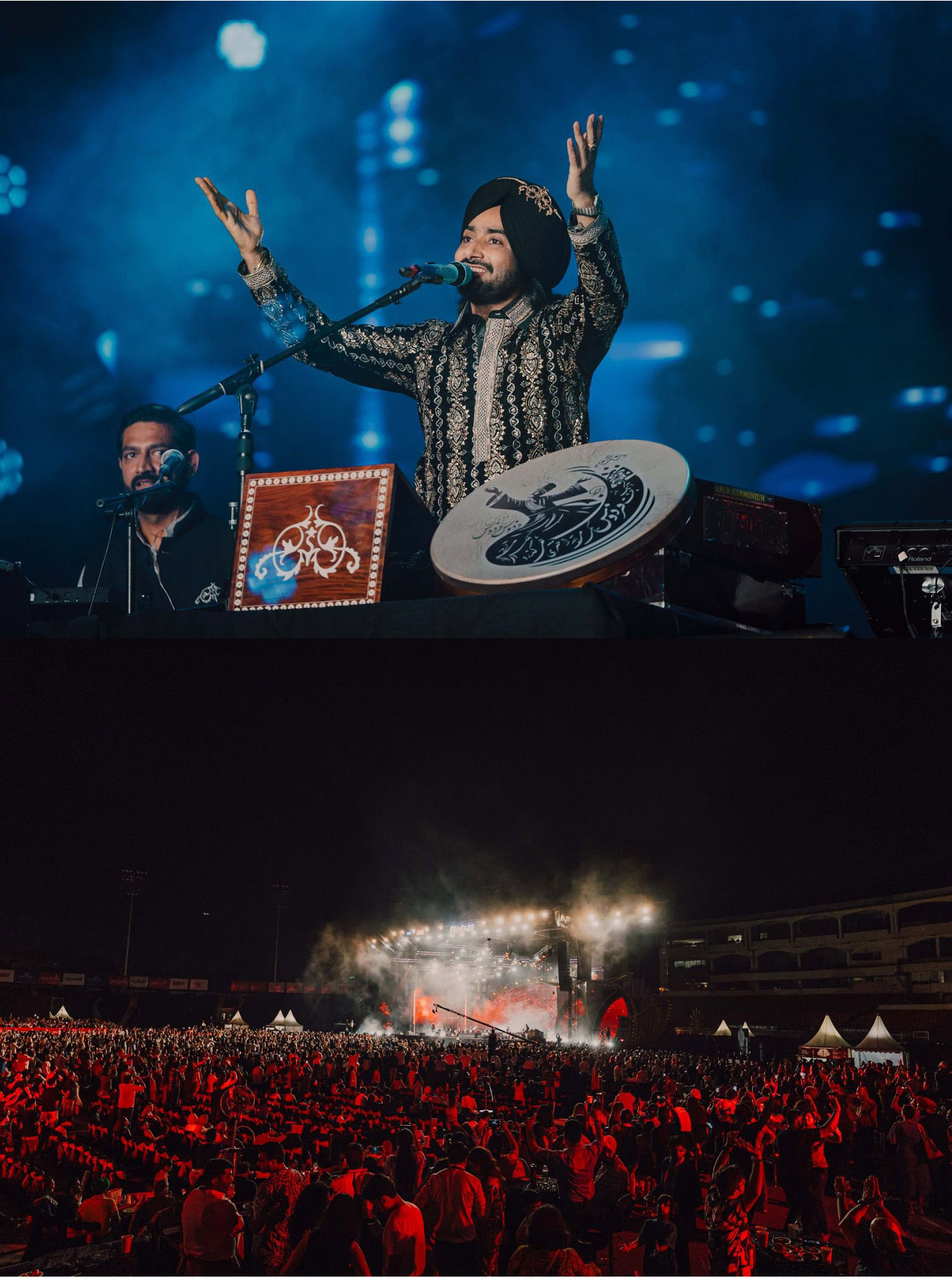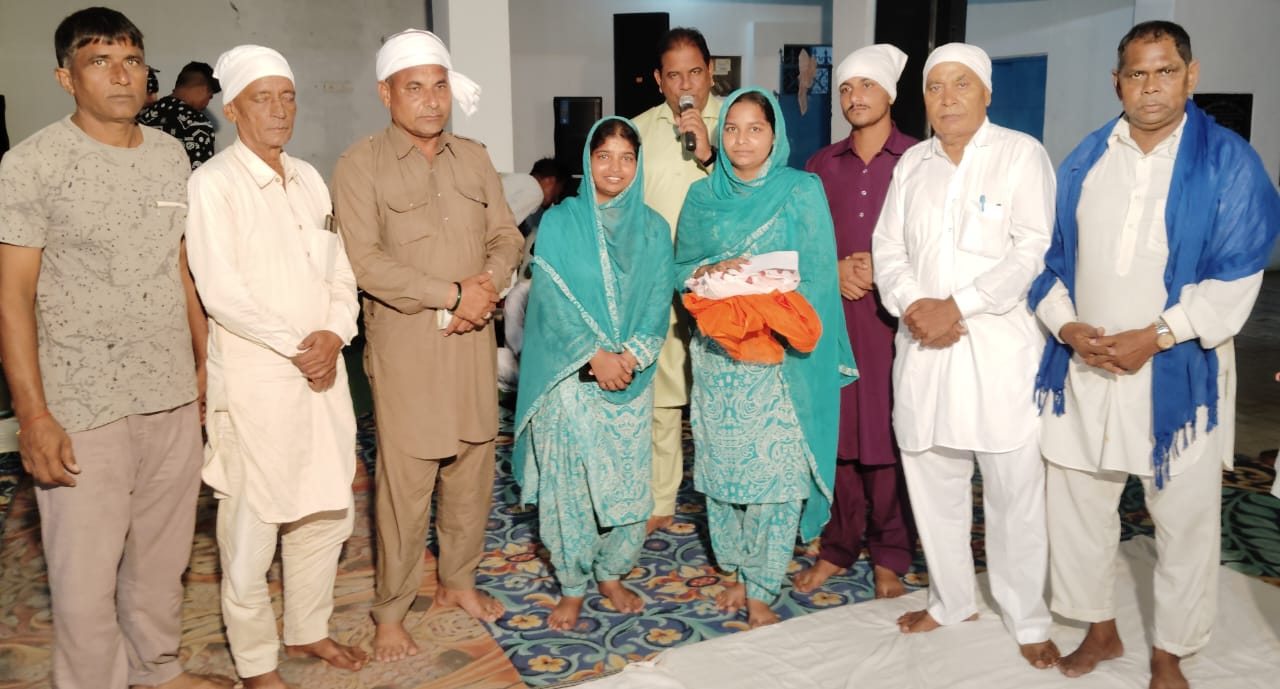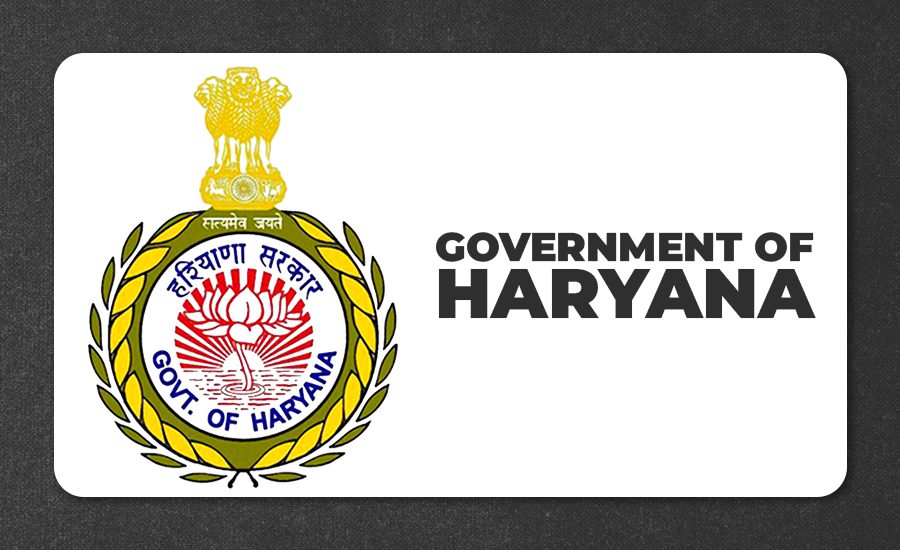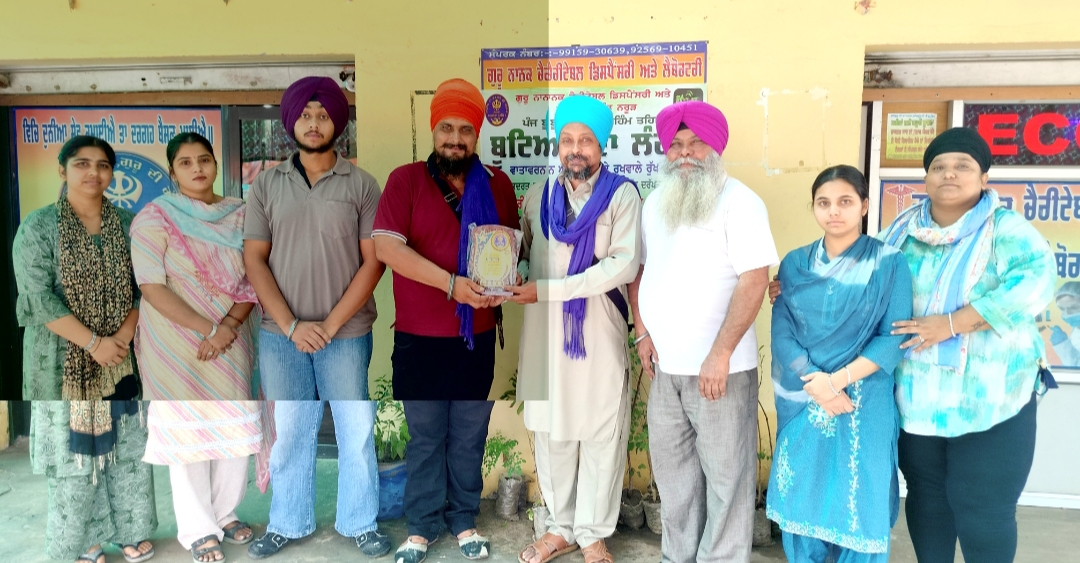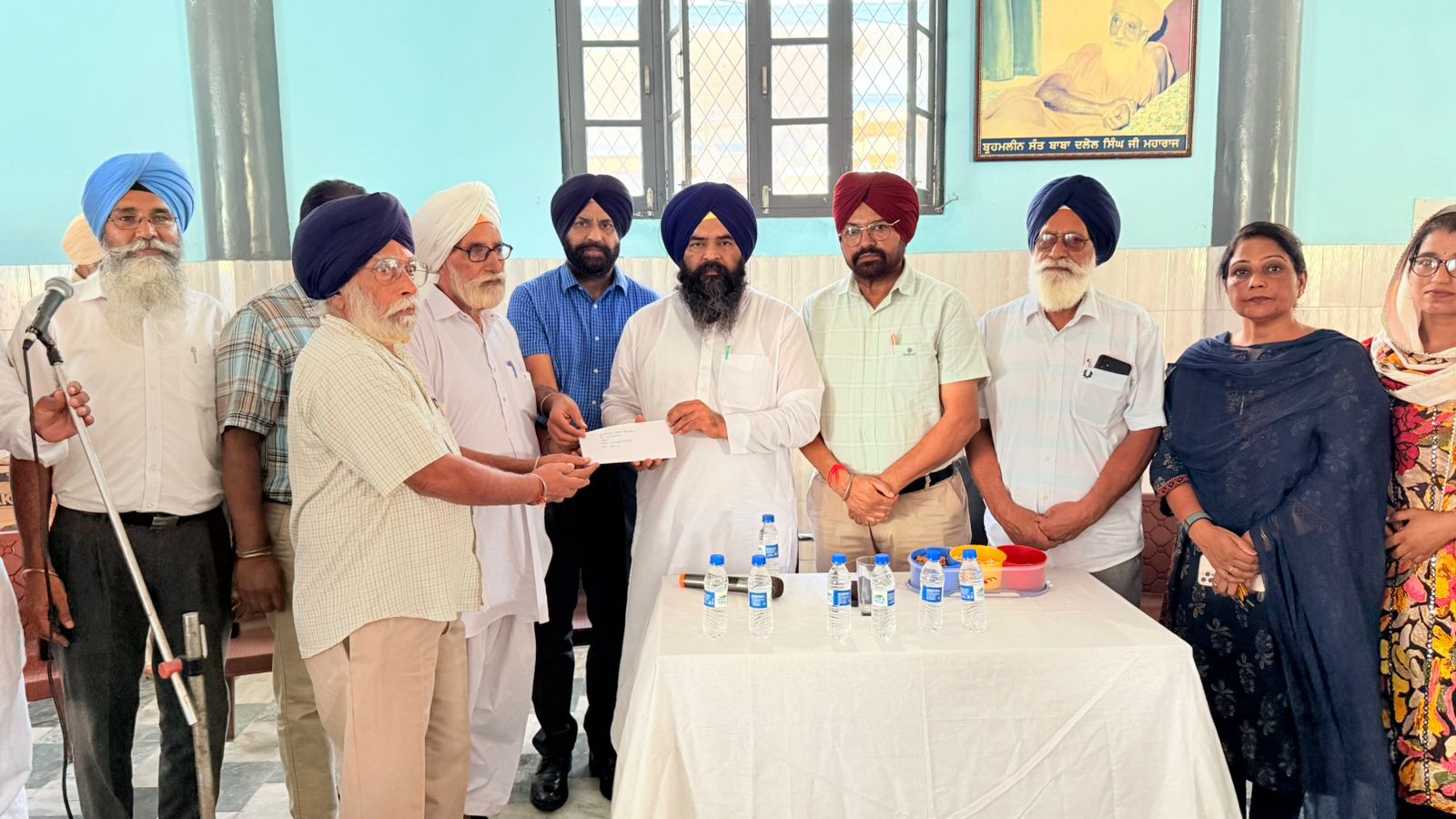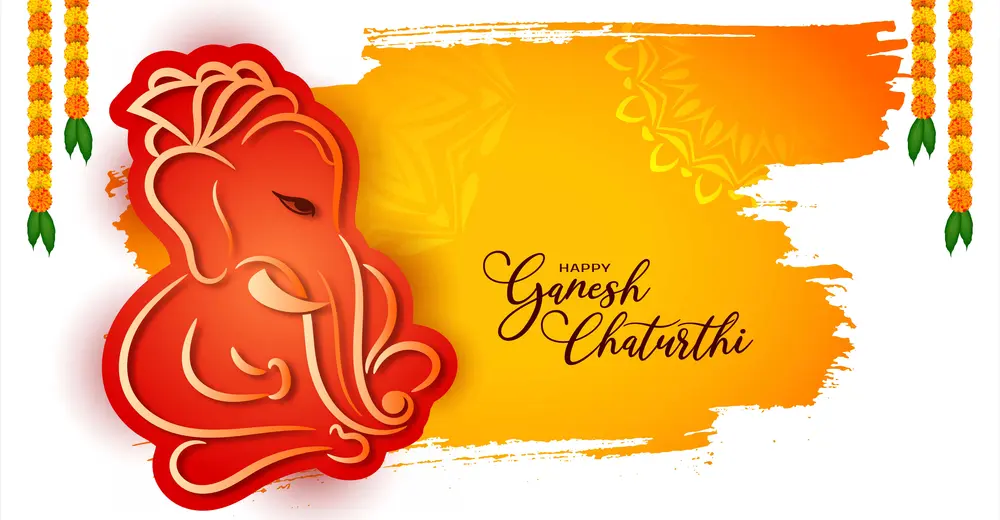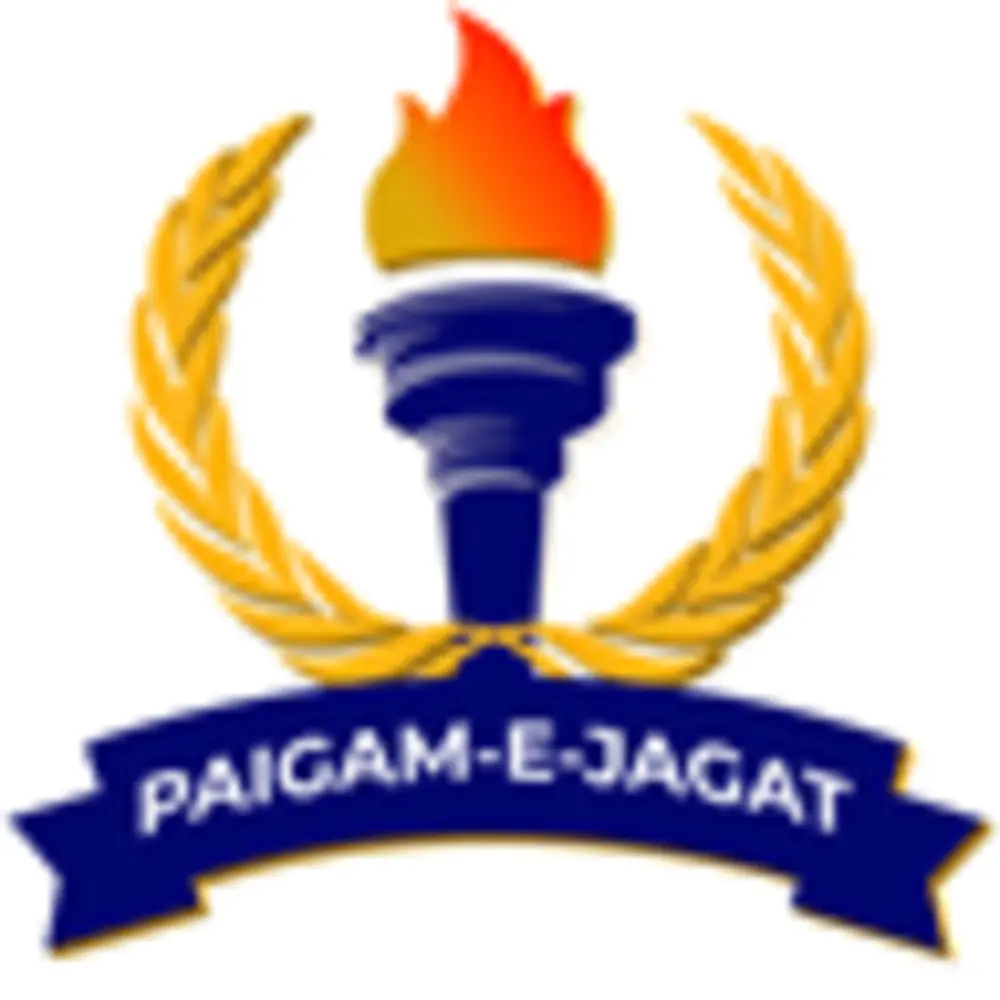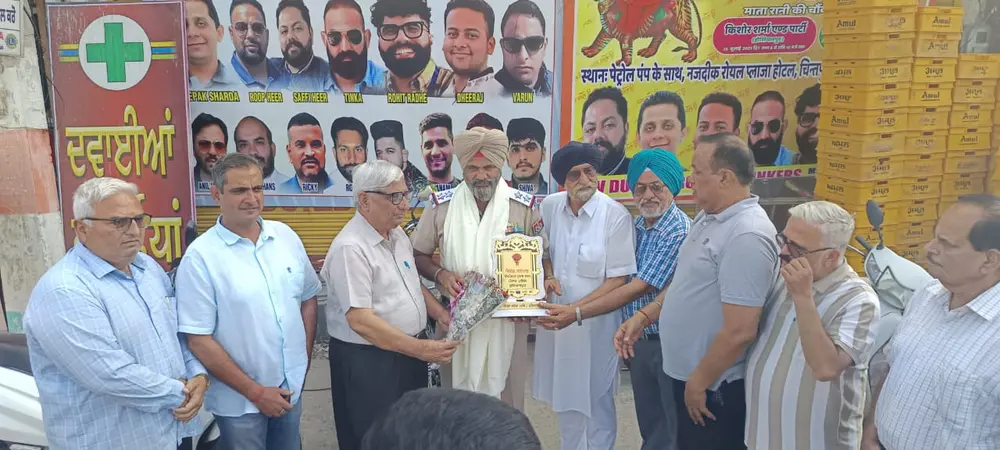
Traffic Incharge Inspector Subhash Bhagat honored by Savera organization.
Hoshiarpur- In today's time, if any officer or organization is performing their duty honestly, then it is very important for the society to honor them from time to time, so that their morale remains high. These words were said by renowned social worker and founder of Savera organization Dr. Ajay Bagga while honoring Inspector Subhash Bhagat who worked honestly in ensuring compliance with traffic rules.
Hoshiarpur- In today's time, if any officer or organization is performing their duty honestly, then it is very important for the society to honor them from time to time, so that their morale remains high. These words were said by renowned social worker and founder of Savera organization Dr. Ajay Bagga while honoring Inspector Subhash Bhagat who worked honestly in ensuring compliance with traffic rules.
Dr. Bagga said that if we stand firm and remain honest, then dishonesty will automatically die. On this occasion, social worker Sanjeev Talwar said that this initiative taken by the organization is highly commendable. He said that those living a social life should stand with such traffic officers who ensure compliance with the rules.
He said that the organization will also honor those people who follow traffic rules with a cash prize of ?5100, and this honor will be given on the recommendation of the traffic inspector.
On this occasion, Savera President Avnish Ohri, Ramcharitmanas to Harish Saini, Sunil Priya, Cultural Conservation Committee President Kulwinder Jando, General Secretary Harbans Singh Kamal, Madan Lal Kalsi etc. were also present.
